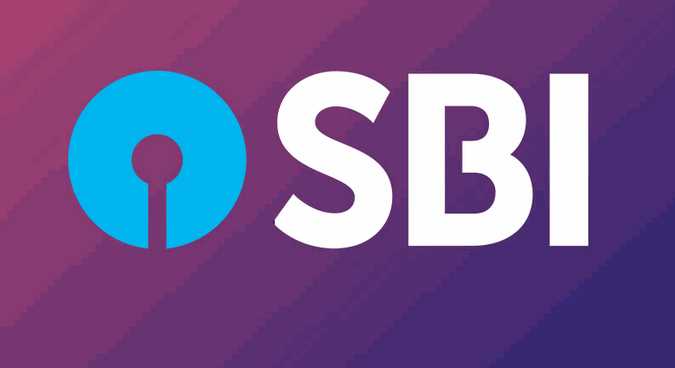The State Bank Of India Probationary Officer is a post for which many aspirants await to give the examination. It has three stages, i.e., prelims, mains, and group discussion. It is the most reputed post for which many people prepare every year. Aspirants must check all the notifications uploaded on the official website to remain updated about the examination. Since it’s the highest demanding job, the level of examination is very tough, and it is not an easy task to crack it in one go. It is suggested to all the aspirants that they search for study material, tips, and tricks on how to crack this examination as this will help them to make a proper study plan in which they have to divide their time equally for all the subjects. It’s a professional level examination, so it is really important to have in-depth knowledge regarding every subject. For this examination, there must be a proper timetable and strategy that an aspirant should follow. The one who will crack this examination will be posted in the State Bank Of India, which is not ordinary. For big events, one must have a power pack preparation. It is a dream of every aspirant to crack the SBI PO examination in their first attempt. It is not a difficult task to achieve, as, with the right strategy, you can ace the examination.
Let us have a look at the preparation strategy that one must follow to crack this examination:
Since the exam is bifurcated into three stages, it is important to prepare for individual stages with the same enthusiasm and hard work as, when you clear prelims, it is obvious that the mains examination is going to be more difficult. So, there should be a continuous process of hard work and dedication.
Tips to prepare for prelims:-
The pattern of prelims is as follows: The duration of the examination is 1 hour, and it carries 100 marks with three sections, which are divided based on the number of questions asked in the examination. The subjects concerned in prelims are:
- Reasoning ability
- Quantitative aptitude
- English language
Here, reasoning ability has a total of 35 questions, English has 30, and Quantitative aptitude has 35 questions which makes a total of 100 questions. The questions are generally up to 10th-grade level. Aspirants should be quick with calculations and problem-solving.
Make brief notes: Aspirants must prepare brief notes while studying as these notes help to retain what you study the whole year and you don’t need to open your books to revise.
Refer to previous year’s question paper: This is the most common and important tip an aspirant must follow if he/she seriously wants to crack this examination. Referring to the previous year’s question paper can easily help you decode what pattern is followed and how much difficulty level is there in the examination. Though the pattern can be changed, it cannot be changed to an extent that you cannot relate to the paper. You will also get to know the important topics that are being asked repeatedly in the exam, so it will be helpful for you to focus more on those topics.
Go through the syllabus: An aspirant needs to know the syllabus well as this is how they will prepare their strategy as to what needs to be studied first and which topic is more important and will require hard work. Understanding the syllabus will help you in various ways as you can sort those topics easily which need more attention.
Attempt mock tests: Giving a mock test is the most important thing an aspirant should do as these mock tests are like a mirror that will show you how much you’ve prepared. The score you get after attempting the mock test will be a tool, from which you can know where you stand and you can track your mistakes. There are various SBI PO test series available online. You can attempt the test and know where you are lacking. Not just mistakes, but you also get to know your strengths.
Revision is the key: The notes which you prepared the whole year are helpful at this stage, as revising the topics will help you retain the concepts which you studied in the beginning.
Now let us see how to prepare for Mains:
The pattern of mains is as follows: The duration of the examination is three hours, and it carries 200 marks with 4 sections divided based on the number of questions asked in the examination.
The subject concerned and division of questions in mains are:
-Data analysis and interpretation: 35 questions
-Reasoning & Computer aptitude: 45 questions
-English Language:35 questions
-General/Economy/Banking Awareness: 40 questions
Total 155 questions are there in the mains examination. Since the difficulty level of mains is more than prelims, it requires dedication and hard work. Being consistent is the key to ace in mains examination. Unlike prelims, mains have computer aptitude, general and banking awareness. Aspirants are advised to prepare for each section thoroughly as there is a sectional cut-off that needs to be qualified.
Though the tips which are required to crack mains are similar to prelims, General awareness and computer aptitude are sections where you need to practice well. In computer aptitude, you should have basic knowledge of hardware and software, internet, networks, MS office, etc., whereas, in general awareness, you should prepare about concepts of finance, Indian economy, etc. The preparation of other sections should be similar to prelims, you just need to revise extensively what you’ve studied in the prelims examination.
For the interview round, the thing you need the most is your confidence. It is evident that since you’ve cleared the previous stages you have enough knowledge of concepts. In an interview or group discussion, you need to be vocal and confident. For better impact, always make eye contact with the interviewer. This leaves a good impression on them, and the chances of your selection become high.



